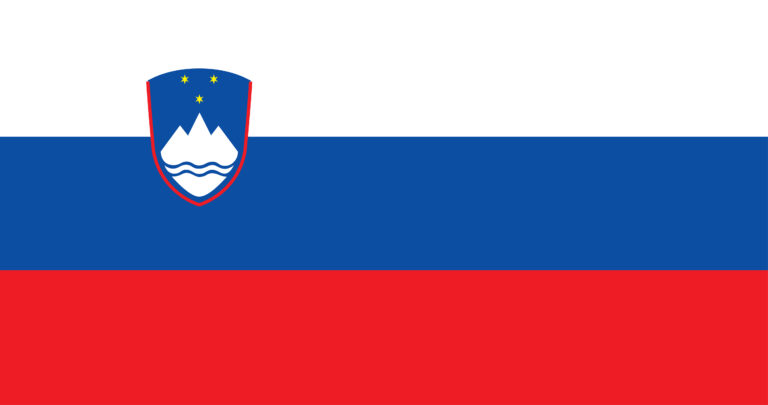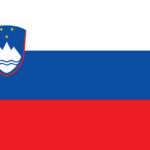Introduction
Physiotherapy is a cornerstone of modern healthcare, focusing on the prevention, diagnosis, and treatment of movement disorders caused by injury, illness, or aging. Phaysiotherapy degree Finland offers a unique blend of scientific knowledge and patient-centered care, aiming to enhance physical function and quality of life. The demand for physiotherapists is rising globally, driven by aging populations, increased awareness of preventive healthcare, and advancements in rehabilitation techniques.
Europe stands out as a hub for quality physiotherapy education, offering a structured academic framework and access to cutting-edge research. A physiotherapy degree in Europe is often designed to align with international standards, making graduates highly employable worldwide.
Among European countries, Finland has emerged as a premier destination for studying physiotherapy. Its Bachelor of Physiotherapy programs are recognized for their emphasis on practical learning and integration with the healthcare industry. Finland’s approach to physiotherapy education combines rigorous academic instruction with extensive internships in real-world clinical environments, ensuring graduates are well-prepared for professional challenges. Additionally, Finnish universities prioritize small class sizes and personalized support, creating an ideal learning atmosphere for international students.
Why Choose Finland for Your Physiotherapy Degree?
Finland offers a high-quality education in physiotherapy, making it an attractive destination for international students. Finnish universities and universities of applied sciences emphasize a balanced approach to learning, combining theoretical knowledge with substantial practical training. Students gain hands-on experience in clinical settings, allowing them to apply what they learn in real-world situations.

Another significant advantage of studying physiotherapy in Finland is the affordable tuition fees when compared to other European countries. Finland offers financial support to international students in the form of scholarships, grants, and student discounts, making it a financially viable option for those seeking a quality education.
The growing job market for physiotherapists in Finland adds another layer of appeal. As the demand for healthcare services increases—driven by an aging population and a focus on rehabilitation and preventive care—opportunities for physiotherapists continue to expand. The Finnish government’s support for healthcare services further enhances the long-term career prospects for physiotherapy graduates.
Studying Physiotherapy in Finland
Degree Structure and Duration
The Bachelor of Physiotherapy in Finland is a comprehensive three-year program that spans 180 ECTS credits, adhering to the European Higher Education Area standards. These programs are designed to provide a robust foundation in physiotherapy through a combination of academic coursework and extensive clinical practice. The curriculum covers essential topics such as human anatomy, physiology, pathology, and therapeutic methodologies, ensuring graduates are well-versed in both theory and application.
What distinguishes Finland’s approach is its strong focus on practical training for physiotherapy students. From the outset, students engage in internships and clinical placements at hospitals, rehabilitation centers, and private clinics. These experiences are integrated into the curriculum to allow students to apply theoretical knowledge in real-world scenarios, ensuring they develop the skills necessary to work effectively in diverse healthcare environments.
Admission Requirements
Meeting the requirements to study physiotherapy in Finland involves holding a recognized high school diploma or equivalent qualification. Most universities evaluate applicants through entrance exams or interviews, which assess their aptitude for healthcare studies and motivation to pursue a career in physiotherapy.
For international students, the application process is typically facilitated through Finland’s centralized Studyinfo portal. Students may need to provide proof of language proficiency—either in Finnish or English—depending on the program’s language of instruction. Many universities also prioritize applicants with a background in biology or health sciences, ensuring they have a foundational understanding of relevant subjects.
Costs of Studying in Finland
The cost of studying physiotherapy in Finland is competitive compared to other European countries, particularly given the high standard of education offered. In addition to tuition, students should account for living expenses, which vary depending on the city. However, Finland’s supportive student benefits, such as discounted transportation and affordable healthcare, help mitigate these costs. Scholarships are also available for eligible international students, making Finland an accessible and attractive destination for aspiring physiotherapists.
Practical Training and Internships
Physiotherapy internships in Europe are typically structured to provide exposure to various healthcare environments. In Finland, students gain clinical experience in hospitals, rehabilitation centers, private clinics, and community health facilities. These placements are supervised by experienced physiotherapists who mentor students and evaluate their practical competencies.
The practical training for physiotherapy students in Finland is extensive and highly structured, often accounting for a significant portion of the program’s ECTS credits. Internships are designed to build critical skills, including patient assessment, treatment planning, and the application of therapeutic techniques. They also emphasize the importance of communication and teamwork, as physiotherapists frequently collaborate with other healthcare professionals to deliver comprehensive care.
Hands-on learning is particularly crucial in physiotherapy because it bridges the gap between theoretical knowledge and patient-centered application. Through real-world exposure, students refine their ability to make clinical decisions, adapt treatments to individual needs, and evaluate the outcomes of their interventions.
The Finnish education system’s emphasis on internships has contributed to its reputation for producing highly skilled physiotherapists. By the time students complete their programs, they possess the practical experience necessary to transition seamlessly into the workforce or pursue advanced specialization opportunities.
Top Universities for Physiotherapy in Finland
Finland is home to several reputable institutions offering high-quality physiotherapy programs, with a strong emphasis on practical training, interdisciplinary learning, and research-driven education.
The Metropolia University of Applied Sciences physiotherapy program is recognized for its comprehensive curriculum and close collaboration with industry partners. The program integrates theoretical studies with practical applications, ensuring students acquire both foundational knowledge and advanced clinical skills. A key strength of Metropolia is its strong network of healthcare organizations, providing students with extensive opportunities for internships and professional exposure during their studies.
Metropolia’s program is also tailored to equip students with skills beyond clinical practice, such as patient communication, teamwork, and evidence-based decision-making. The university offers state-of-the-art facilities, including simulation labs and modern teaching clinics, which enable students to practice and refine their techniques in a controlled environment. These features position Metropolia among one of the best physiotherapy programs in Europe for international students seeking a rigorous and well-rounded education.
While Metropolia is a prominent choice, other Finnish institutions also offer excellent physiotherapy programs. For example, institutions like Satakunta University of Applied Sciences and JAMK University of Applied Sciences provide programs with similar emphases on hands-on training and research-based learning. Each university offers unique strengths, such as smaller class sizes or specialized modules, catering to diverse student needs.
Professional Certification and Career Opportunities
Certification Pathways
After completing a Bachelor of Physiotherapy in Finland, graduates can pursue various certification pathways to enhance their expertise and career prospects. Many physiotherapists choose to specialize in areas such as sports physiotherapy, neurological rehabilitation, or pediatric care. These physiotherapy specialization programs in Finland are designed to provide advanced training in focused disciplines, equipping professionals with the skills needed to address specific patient populations or conditions.
Continuing education opportunities are abundant, with options ranging from Master’s programs to short-term courses. A Master’s degree in physiotherapy or related fields allows practitioners to delve deeper into research, leadership, or teaching roles. Additionally, specialized certification courses provide targeted skill development, enabling physiotherapists to stay updated with advancements in the field and meet the needs of an ever-changing healthcare landscape.
Career Opportunities in Finland
Graduates of Finnish physiotherapy programs benefit from a dynamic job market with diverse opportunities. Common roles include positions in hospitals, private clinics, rehabilitation centers, and community health organizations. Many physiotherapists also choose to work as freelancers, offering specialized or home-based care services to meet the rising demand for personalized treatment.
The physiotherapy job opportunities in Finland are particularly strong in the rehabilitation and public health sectors, where physiotherapists play a critical role in managing chronic conditions and promoting recovery from injuries or surgeries. This demand is driven by Finland’s aging population and the increasing focus on preventive healthcare. Moreover, physiotherapists are integral to multidisciplinary teams, collaborating with doctors, occupational therapists, and other healthcare professionals to provide comprehensive care.

Graduates with a physiotherapy degree in Finland are not only well-prepared to excel in domestic roles but also positioned to work internationally. Finland’s adherence to European education standards ensures their qualifications are widely recognized, enabling seamless transitions to global career opportunities. This combination of specialized training, practical experience, and high demand for services makes physiotherapy a rewarding and secure career choice in Finland and beyond.
The Role of the Finnish Physiotherapy Association
The Finnish Physiotherapy Association (Fysioterapeuttien Liitto) plays a crucial role in supporting and advancing the physiotherapy profession in Finland. Established to represent the interests of physiotherapists, the association works to uphold high professional standards, advocate for healthcare policies, and provide resources for ongoing professional development. Its membership includes a wide range of physiotherapists from various specializations, offering a platform for networking, knowledge exchange, and collaboration.
One of the key responsibilities of the Finnish Physiotherapy Association is to ensure that the practice of physiotherapy adheres to rigorous ethical and clinical standards. The association sets guidelines for practice, promotes evidence-based care, and helps maintain the quality of physiotherapy services across Finland. Additionally, the association works closely with healthcare providers, government agencies, and educational institutions to ensure that physiotherapy education aligns with the latest research and industry needs.
The association also plays a pivotal role in continuing education, offering various programs to help physiotherapists stay updated with the latest trends, techniques, and research in the field. This includes organizing workshops, seminars, and conferences, as well as providing access to specialized training and certifications.








